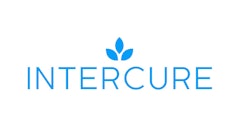LOS ANGELES, Oct. 02, 2019 (GLOBE NEWSWIRE) -- PRESS RELEASE -- MCTC Holdings, Inc. has announced the filing of its third patent relating to bioavailability and delivery of cannabinoids and other active ingredients to the human body. The recent provisional patent filing is for a unique 4D, shape changing cannabinoid and active ingredient delivery system for beverages and some foods. In physics, the fourth dimension refers to normal three-dimensional space--length, width and depth--augmented with the fourth dimension of time. Relative to MCTC’s invention, the fourth dimension is a combination of both time and the presence of liquid as the device reacts to both in order to both change shape and to infuse beverages with cannabinoids.
The MCTC cannabinoid delivery system, which was developed in conjunction with Cannabis Nanosciences, Inc., is an edible, 3D printed object that, when placed in a beverage, changes into a predetermined shape while infusing the beverage with a precise amount of cannabinoids, other active ingredients or flavorings. The technology can be used with various forms of cannabinoid infusion technologies, including MCTC patent pending cannabinoid nanoparticle technology, which utilizes a water soluble form of vitamin E as a bioenhancer.
“This is an additional innovation for cannabinoid delivery produced by MCTC,” commented Arman Tabatabaei, CEO of the company. “We see many applications for this technology both within the cannabinoid industry and relative to the delivery of other active ingredients. Recent advances in 3D printing and cannabinoid infusion make this technology possible and cost effective to produce. We plan to commercialize this technology via an internally funded effort.”
This patent filing follows MCTC and other recent filings on cannabinoid nanoparticles combined with d-α-Tocopheryl polyethylene glycol 1000 succinate, known as TPGS, which is a proven bioenhancer based on non-GMO sunflower oil and on an edible dissolvable nanoparticle enhanced film for delivery of cannabinoids, vitamins and other active ingredients.
MCTC recently announced its researchers had achieved sub-micron sized polymeric particles of cannabidiol (CBD) with and without inclusion of TPGS as a bioenhancer. Work continues on numerous other forms of polymeric nanoparticles and nanofibers containing cannabinoids and other compounds. Additionally, the Company has developed several formulations of nanofibers for transdermal applications and other non-nanotechnology cannabinoid delivery systems.
Tabatabaei continued, “The polymer-based nanoparticles we are developing should not be confused with the simple oil-in-water nanoemulsions being marketed as interim solutions to the food and beverage industry, as these two technologies are significantly different. The polymer based particles we are developing will allow for significant loading of active ingredients and unparalleled flexibility in creating custom cannabinoid combinations with unique performance characteristics. We believe this will be an important technology area for the cannabinoid formulation marketplace."

























